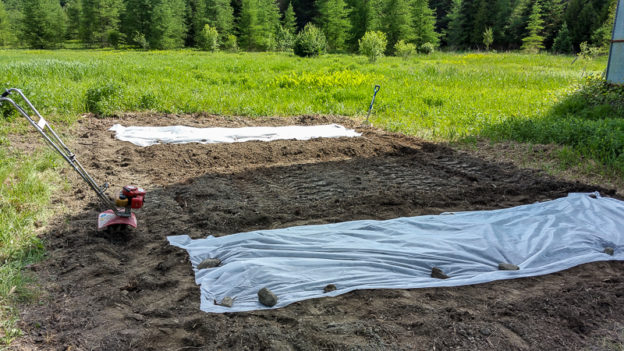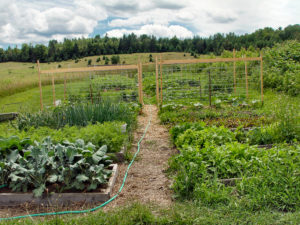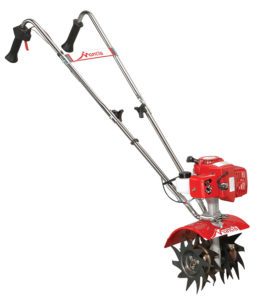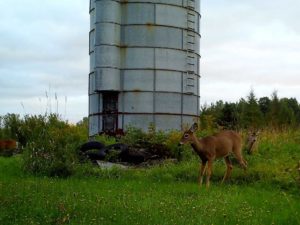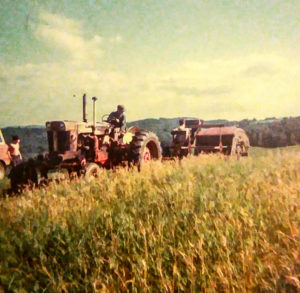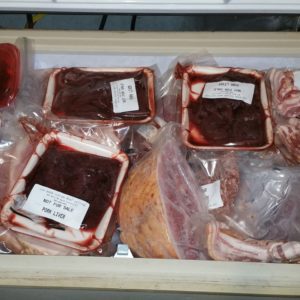So, this post isn’t what I had planned on posting this week. I started working on a post about Horatio Alger stories and why people today, even adults, should read them but it isn’t close to being ready yet. Also, one of my free days for writing and editing, Saturday, got taken up with getting a garden going which brings me to this post.
Growing up in rural Vermont, a college classmate of mine once called me a hick, having a garden in is nothing new. When I was younger, my parents always had one, and we helped out in it, and when I was a bit older, I helped my grandmother with her garden. There was even a time when I was very enthusiastic about gardening and planted a roughly 2000 square foot garden, which is a tremendous amount of work to maintain for one person, and I only partially succeeded at it.
This year, I am smart enough to start with something relatively small. The spot for the garden is only about 300 square feet, and I located it much closer to the house which will make it much easier to tend to in the evenings after work. It definitely won’t suffer from the “out of sight, out of mind” syndrome my last garden suffered from. It will also be much more convenient for my wife to harvest from once she is here in August. (The ground getting to the old garden was pretty rough, especially for someone more used to city streets.)
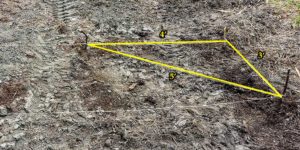
How do you make your beds square in the garden? Geometry!
For those who have never done much vegetable gardening, a tremendous amount of work, physical and mental, is involved. It is more work if, as is the case for me this year, you are putting a garden in a new location. Thankfully our next door neighbor was kind enough to bring his tractor and rototiller over and break up the ground for us. Our soil runs to a bit clay-y, so it takes a lot more work to get it ready for planting. Starting off I thought I could just do it by hand with a spade and garden fork but about half way through the first 3′ x 12′ bed, I realized I had significantly underestimated the amount of work to turn over and break up all the soil and overestimated my ability to do the work. (Years of more or less sedentary office work take their toll.) Luckily, we have an old Mantis tiller which amazingly started after just a few pulls even though it sat unused since the last garden I had, at least two years. The Mantis made things easier, but it still took the better part of two hours to get three beds shaped up and ready for planting.
The work was hard physically, but not mentally once you get into it, so I had plenty of time to think and think I did. I thought about all the ways that our semi-capitalist system made it possible for me to have a small garden. Click & Tweet! It is capitalism that makes it possible for someone to develop the idea for a small rototiller such as the Mantis and then manufacture and sell it. Without that small piece of equipment, I thought, I would have had to continue using the garden fork to break up the soil. Then I realized that without capitalism, it is unlikely that I would have had such a tool in the first place. I certainly wouldn’t have been able to buy one at a hardware store, along with a spade and rake, for something like $10 each. Further, without capitalism, I wouldn’t have my job maintaining an online ticketing system which provides the money for me to buy the tools and the seeds.
Speaking of seeds, we are getting most of our seeds from a local business, I do sometimes “buy local,” run by friends of the family. Le Jardin du Gourmet sells seeds for all sorts of vegetables, herbs, and flowers (and plants as well) not just to local gardeners but to people all around the world. This business would certainly not exist without capitalism.
Environmentalism would make small, and large, scale agriculture virtually impossible
Thinking about all the ways that capitalism made my garden possible, I started to think about what it would be like if certain environmentalists and politicians (in some countries at least) had their way and we turned away from cheap and abundant energy. What would happen if we turned the clock back and drastically reduced our energy consumption as folks like Bill McKibben demand? In 1998, McKibben endorsed a plan that would reduce fossil fuel consumption by 60% even though, if you carpooled, which is certainly not an option for anyone living in rural Vermont, you would only be allowed enough energy “to run a highly efficient refrigerator. Forget your computer, your TV, your stereo, your stove, your dishwasher, your water heater, your microwave, your water pump, your clock. Forget your light bulbs, compact fluorescent or not.” (For those that think that environmentalists only want to turn away from fossil fuels, I suggest you read my two post series titled Put People First.)
Well, first off the Mantis tiller that allowed me to do the final breaking up of the soil would be out, as would the tractor my neighbor used to break up the sod in the first place. These things wouldn’t exist or would be prohibitively expensive. Without these tools, I likely wouldn’t have been able to have a garden at all, but let’s imagine that I had a bare spot of ground to work with. Without the Mantis, I would be reduced to the backbreaking labor of tilling the soil by hand, something I am now ill-equipped to do. Even with the nice metal fork, lord knows how long it would have taken me to till up just the 2/3 of this year’s small garden plot I did today. Certainly much longer than the 2 hours it took. Of course, without our cheap and abundant energy, I likely wouldn’t have my job and the garden fork, mass produced using cheap energy, wouldn’t have been available at a cost I could afford in any event.
But let’s imagine that I did manage to get the tools to till the garden by hand, what would I be able to plant? Without the abundant energy we have today, it is unlikely that you would be able to buy seeds. Click & Tweet! People would need to do what they did before the first seed companies emerged in the mid-19th century, save their own seeds. This had a couple of effects. It significantly reduced the variety you could grow to what you had either grown before or what someone you knew grew. (This is a problem I have with the locavore movement. Are we supposed to give up everything that can’t be grown in the place where we live? Do you give up citrus fruit because you live in Vermont or apples because you live in the tropics? The Locavore’s Dilemma has a good discussion about this issue.) It also reduced by varying degrees the amount of your harvest that you could consume as you had to save out next year’s seed and once you start eating your seed stock you will shortly starve. (This is why I am especially appalled when politicians like Venezuela’s President Maduro tell his starving people that they should raise some of their own food to make up for what his government policies have made scarce. Where exactly they are to get the surplus to plant when they are starving is beyond me. And don’t even get me started cities being called parasites.) If you had a bad year you faced the very real choice of starving now or starving later.

One of several gardening books I used in starting my garden this year. Written by a man a few towns over from me.
Ok, let us imagine I did manage to find someone who had seed to spare of the varieties of vegetables I wanted to plant and somehow had the money to buy them. (Remember, I am likely unemployed and nearly unemployable without abundant energy. An office person specializing in computers doesn’t have a lot of skills needed in a low energy world where you can “forget your computer.”) So I start planting my garden following the best practices from several books I have on gardening. That is, of course, assuming that I would be able to afford books on gardening in the low energy world of the environmentalists. There likely would still be books, but without cheap energy, books would be more expensive, and most people would be less affluent. This means that the fixed costs of the publisher must be covered by fewer buyers of books, which would push the prices higher, even further restricting the pool of people who could afford them. I would want the books to save me the time of figuring out for myself, by trial and costly error, the best way to grow these vegetables. What is the best spacing for the vegetables I am planting, what other things could be planted with them to ward off pests and help the plants grow better?
One of the things you want to do with newly planted gardens, especially if you have some crows around, is cover the beds to keep the crows from eating the seeds. Today, I could order nice lightweight row cover material that lets light and water through, raising the temperature below them, and keeps that the birds away. These certainly would not be available in a low energy world, nor would the internet via which I ordered them or UPS, who delivered them to my house. None of this would not exist without cheap, abundant energy. Click & Tweet! To try to keep the birds away I could try making some scarecrows, but the crows here aren’t too skittish, so I don’t believe they would work to well, but I wouldn’t have too many other options.
Well, ok. Let’s imagine that somehow I’ve gotten my plants beyond the stage where I have to worry about the crows and other birds eating the seeds or newly sprouted plants out of the ground. Now they are big enough for a new hazard to present itself: critters. Now, I love the animals that roam near my house, but if I am gardening, they are a pain in the ass. If I had to rely on my garden for most of what I ate, they would be a distinct hazard to my health. This year I will put a solar powered, with battery backup, electric fence with two strands of wire, one at a height to hopefully dissuade the deer from eating everything in sight and another low to the ground to discourage woodchucks, which also eat everything, and raccoons, which are especially fond of corn. In a low energy world, I wouldn’t have access to the device that sends the current along the wire, let alone the wire and fiberglass posts it is attached to. The next best alternative would be barbed wire, but in a low energy world, that isn’t likely to be available or affordable. I could certainly try to make an old school split rail fence which might, though I doubt it, keep the deer out but would do nothing even to slow down the raccoons or woodchucks. This is assuming that I could find a way to cut down the trees and split the rails. I have an ax and a splitting maul, but again this is a task I am woefully suited for. Perhaps I could trap the raccoons and woodchucks or shoot any of the critters, though I cringe to think what the animal rights folks would have to say about that. Traps, guns, and ammunition are likely available, though I am not sure how I would buy them as they would certainly be more expensive in a low energy world. (I am leaving aside any discussion of how I might have to deal with insect pests in a low energy world as I don’t really know how I would do it other than go out every day to check on the plants and pick off by hand and slugs and insects on the plants. I have had to do this with potatoes even today.)
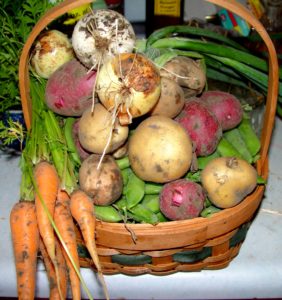
It is a lot of fun to just go out to the garden and harvest fresh food the day you are going to eat it.
So at this point, after a tremendous amount of backbreaking work and tireless vigilance, I have made it to harvest time, and I would be able to enjoy going out each day and seeing what was ready to eat fresh from the garden. This is the best time of the year for a small scale gardener. We can go out and pick something fresh from the garden to go with what we bought at the store. Maybe it is just lettuce, tomatoes, and cucumbers to make a salad to eat with your steak cooked on the grill. Maybe it is potatoes to make potato salad to go with your hamburgers on a hot late summer day, or maybe it is my mother’s favorite of new potatoes and green beans with half and half and butter. In a low energy world, what you got from the garden might be all that you are eating since large-scale agriculture would likely be a thing of the past. (It is hard to imagine large farms, or even small ones really, if we had to cut energy usage by the amount Bill McKibben has suggested. Even if they existed, how would you get the produce from the large farm to your table without cheap and abundant energy?) In a low energy world you wouldn’t just have a small garden like I worked a couple of hours on to get started. You’d have a huge garden, likely bigger than the 2000 square foot garden I had several years ago and the difficulty of everything I’ve mentioned so far is multiplied accordingly. You would have to raise enough not only to feed you and your family while the harvest was going on but also enough to last the other 9 or 10 months or so when there isn’t anything available in the garden.
This brings up the problem of storage. In a high energy world, storing isn’t too much of a problem if you are inclined to do all the work required to raise all your own vegetables and have the time to prepare it for storage. (It is much less expensive to buy it at the grocery store, which is why most people don’t bother to raise their own, even if they have the space to do so which not everyone does. There is more variety in the grocery store too.) It is pretty straightforward if time-consuming, to can vegetables or blanch them for freezing. (Assuming of course that you have a spare freezer to put a year’s worth of food in.) If you have a cool basement, you can usually store root vegetables like carrots, beets, and potatoes pretty easily. (Make sure you have enough extra potatoes for next year’s planting.) In a low energy world, freezing is out, and I am not certain you’d be able to can vegetables. If you have a wood burning stove, assuming those are still legal, you could manage it though I prefer not to imagine having a wood burning stove running hot enough to boil water, necessary for canning, in the middle of August. (I am not sure if canning jars would be widely available in a low energy world. If they are they will be much more expensive.)
I have only been talking about vegetables because that is what I have the most experience growing myself, but all of these points can be made about grains, fruit, and meat. I helped my grandfather raise a little grain one year. Of course, we had a harvester towed behind a diesel tractor to harvest and bag the grain. Lord knows what it would take to manage to raise all the grain you’d need to feed a family in a low energy world, let alone transform the harvested grain into a form usable for humans. I suppose you’d be able to take the grain to a grist mill located on a river, assuming the environmentalists allowed such a thing. (Again, refer to my Put People First articles.)
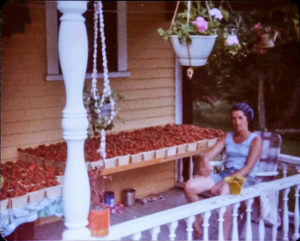
My mom with one day’s harvest from 5000 strawberry plants. For a couple of weeks, we would sell up to 100 quarts a day at $1 each. Us kids got 10 cents a quart for picking them.
I have a little experience with Vermont fruit as well. We have apple trees all over our property as well as blackberries, blueberry bushes, and when I was younger we grew a lot of strawberries, one year we had about 5000 plants. We likely wouldn’t have the blueberries or strawberries in a low energy world as we bought all of them through the mail or in garden centers. One thing I do know is that the selection of fruit in Vermont is pretty limited. In a low energy world, you can forget oranges, bananas, kiwis, and grapes to name a few. (We do have some wild grapes that grow on our property, small and bitter, though.) The season for all the fruits that are available to us are pretty short, three weeks or a month for strawberries as I recall from the days we used to sell them on the side of the road. (Is this still legal I wonder? Maybe, but I’m sure our big sign would be against the anti-billboard laws in Vermont now. Of course not so many people would be driving by to see them anyway.) So you could have an abundance of fruit for a short period, but then you are back to the problem of storage, which is even harder for fruit as they are more fragile than vegetables. Some apples do store well though so you could at least have apple sauce and apple pies through the winter. (Well, assuming you could get sugar.)
Meat I know even less about as we’ve never raised much of our own meat. We raised chickens for eggs and meat one year when I was young, but a fisher cat took care of most of the flock, and that was with chicken wire which would likely be unavailable in a low energy world. Meat consumption would certainly be limited in a low energy world just from the problem of storing it. Today we buy a half a cow from a local farmer, another instance of our buying local, who gives us a good deal because we let him cut hay on our property for no cost. In a low energy world, we wouldn’t have the freezer to store it in, and the farmer wouldn’t be able to cut the hay here anyway, so I’m not sure how that would work. In a low energy world, we might be able to go every couple of days to the butcher shop. These might still exist, though with much-reduced quality and variety.
Well, this has certainly run on much longer than I had intended when I started pondering how capitalism made it possible for me to have a small kitchen garden from which my wife and I will be able to select something fresh for dinner for a few weeks later this summer. It is certainly depressing to know that what I’ve described above is what many environmentalists view as the ideal for human life. There are those who do so implicitly with their calls for massively reducing energy consumption, and there are some who see “going back to the land” and being self-sufficient explicitly as the ideal. They completely ignore all the things that a modern, division of labor, capitalistic society provides them which makes it possible for them even to consider it.
It is like these shows my mother likes on the History Channel where people are living off the grid. Shows like Mountain Men and Life Below 0. Certainly these shows depict people who live their lives without a lot of modern comforts, but every single one of them relies on modern technology to survive in the wilderness. Whether it is the Eskimos using snow machines when they go out hunting or the man that flies his plane into the wilds of Alaska to trap or the man who tans hides and makes knives to sell to people in civilization to buy the things he needs.
So the next time someone tells you we need drastically to cut our energy usage or we should just “eat local” or grow our own food, remember everything that it implies, and I only scratched the surface of the implications to small scale gardening. Imagine what the impacts would be in all other aspects of modern life and society.
At root, it implies turning the clock back to the 18th century, if not earlier, and in the process, we lose everything that makes modern society possible while condemning billions to death.

